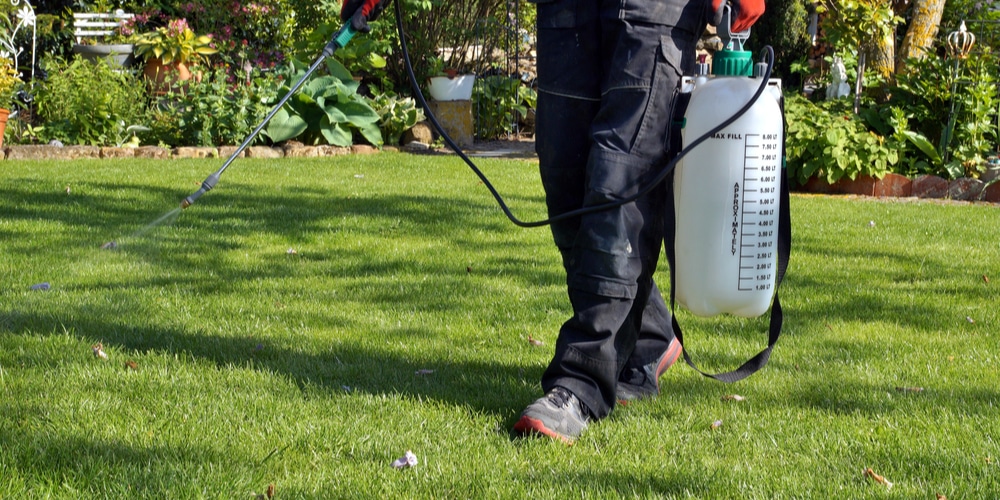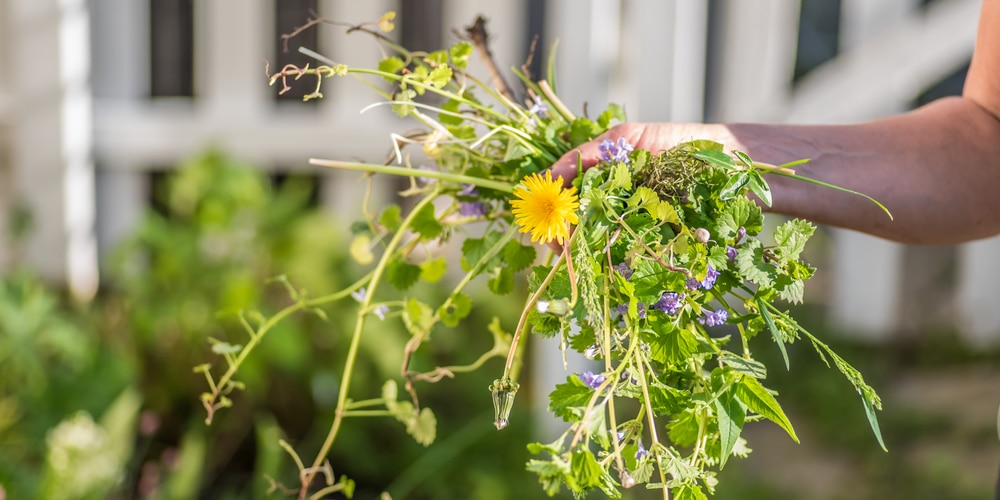Apple cider vinegar has been described as an environmentalist dream come true. It can be used to kill weeds and is a natural product that is non-toxic and environmentally safe. It’s also very inexpensive and is found in many household kitchen cupboards. The downside to using apple cider vinegar is that it may not totally kill the weeds, and you could find that they regrow at a later date.
As apple cider vinegar is acidic, it can also harm your grass and cause it to turn yellow. Let’s look at whether apple cider vinegar kills grass and weeds.
Does Apple Cider Vinegar Kill Grass?
It’s worth noting that apple cider vinegar is non-selective, so if you spray it all over your lawn and kills your weeds, it is also likely to destroy your lawn. However, most apple cider vinegars aren’t acidic enough to totally kill weeds or grass. They may make plants, grasses, and weeds dieback, especially if you live in a sunny climate. Apple cider vinegar is unlikely to kill your grass completely. It will make the blades turn yellow but won’t affect the roots, so it’s most likely that your grass will grow back in time.
Does Apple Cider Vinegar Kill Weeds?
Many people are searching for an inexpensive and environmentally friendly weed killer, and there have been lots of studies done into the effectiveness of apple cider vinegar.
Some weeds, such as the Canada thistle, can be killed using apple cider vinegar. However, the roots generally aren’t affected, so the weed will end up re-growing.
Apple cider vinegar often does not affect annual weeds, including foxtail, pigweed, creeping charlie, and velvetleaf. It was found that pickling vinegar that has a high acidity is more beneficial for weed control. There are many weeds that look like grass that you can spray with apple cider vinegar.
Using Apple Cider Vinegar to Kill Weeds
Apple cider vinegar can be sprayed on weeds as it acts as a contact herbicide. Alternatively, you can drench the soil in apple cider vinegar to kill the weeds. Spraying weeds is likely to be the most effective method as the sun will cause the acidity of the vinegar to burn the weed.
Spraying apple cider vinegar onto a plant will dissolve its protective waxy layer. This makes the plant more vulnerable and causes it to dry out to the root. Before using apple cider vinegar as a weed killer, you should check how acidic it is. Find a vinegar that has high acidity, such as white vinegar or pickling vinegar. You may also see natural herbicides on the market that contain concentrated vinegar.
You should also be aware that pouring apple cider vinegar onto the soil can change the soil’s pH. If you regularly use apple cider vinegar as a weed killer, you’ll affect the earth so much that plants will struggle to survive as the soil will be too acidic.
Conclusion
In Sweden and other countries in Europe, apple cider vinegar has been approved and registered as an effective herbicide for killing weeds growing in cracks in concrete sidewalks. You may also find our guide to weeds that look like grass useful.
If you have weeds such as dandelions in your lawn, the most effective and environmentally friendly way to eliminate them is to dig up the plant. Ensure that you remove the tuberous root so that it doesn’t regrow.
Last update on 2025-06-06 / Affiliate links / Images from Amazon Product Advertising API



